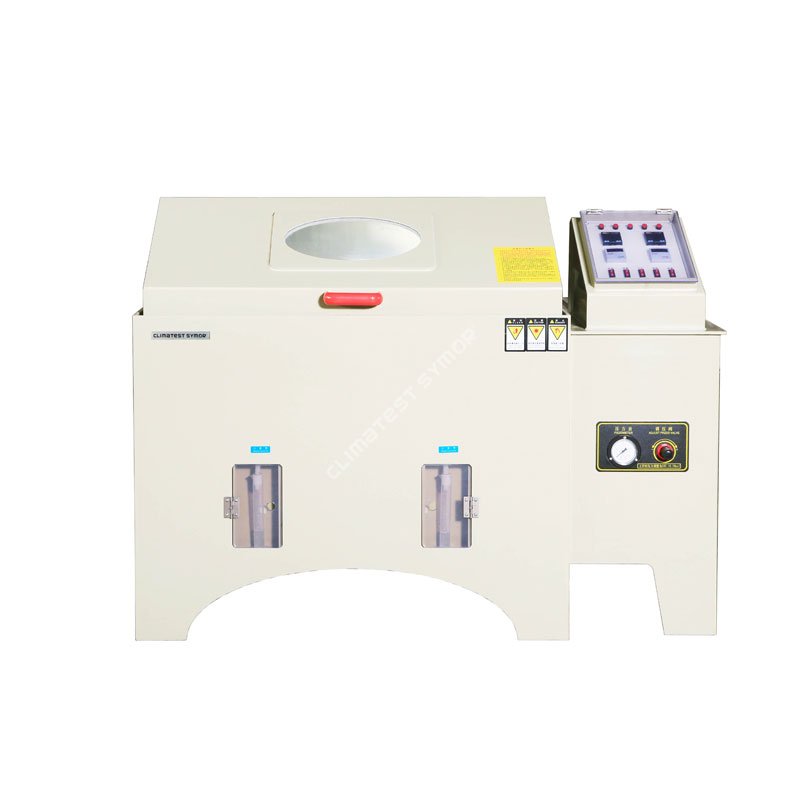Why Should We Choose a Salt Spray Test Chamber for Reliable Corrosion Testing?
2025-09-16
In today's competitive manufacturing and materials industry, durability and reliability are key factors in ensuring product quality. Corrosion resistance is one of the most important parameters when evaluating metals, coatings, and surface treatments. A Salt Spray Test Chamber provides a standardized, accelerated environment to simulate years of natural exposure within days. By using this equipment, I can identify weak points, optimize materials, and guarantee consistent performance for my clients. Many industries, from automotive to aerospace, rely on this tool to ensure that their products meet strict corrosion-resistance standards before entering the market.
What Is the Role of a Salt Spray Test Chamber?
The Salt Spray Test Chamber is designed to evaluate the corrosion resistance of coatings, paints, electroplated layers, and metallic materials. It works by creating a controlled fog environment with a salt solution, usually sodium chloride (NaCl), which continuously sprays on the test specimen. This simulates harsh marine or industrial conditions.
Main functions include:
-
Accelerated corrosion testing of coated and uncoated materials
-
Quality control for surface treatments such as galvanization, anodizing, and painting
-
Comparative analysis of different anti-corrosion technologies
-
Standard compliance testing (ISO, ASTM, GB, JIS standards)
| Test Parameter | Typical Range / Standard |
|---|---|
| Salt solution | 5% NaCl (commonly used) |
| Temperature | 35°C ± 2°C |
| Relative humidity | ≥ 95% |
| Duration of test | 24h – 1000+ hours |
What Is the Effect of Using a Salt Spray Test Chamber?
When I use a Salt Spray Test Chamber, I can quickly obtain results that reflect long-term exposure conditions. For instance, a product that would take two years to show corrosion outdoors can demonstrate visible failure within 72 hours in the chamber.
Key usage effects include:
-
Reliable data: Test results provide accurate performance insights for product development.
-
Cost reduction: Detects flaws early in the R&D phase, avoiding costly recalls.
-
Efficiency: Shortens evaluation time, supporting faster product launches.
-
Customer confidence: Enhances trust by proving that products can withstand harsh conditions.
Why Is the Salt Spray Test Chamber Important?
Q1: Why should I prioritize corrosion testing for my products?
A1: Because corrosion directly impacts product safety, functionality, and lifespan. Without testing, I risk delivering products that fail prematurely.
Q2: Is a Salt Spray Test Chamber better than natural outdoor exposure?
A2: Yes, because outdoor exposure is time-consuming and unpredictable, while the chamber offers repeatable and accelerated conditions.
Q3: Does this testing really add value for my clients?
A3: Absolutely. By proving durability, I ensure clients receive materials that meet international standards and have competitive market advantages.
Applications and Industries Benefiting from Salt Spray Test Chambers
-
Automotive industry – testing car body coatings, screws, fasteners, and engine components.
-
Aerospace industry – ensuring aluminum alloys and protective coatings resist extreme conditions.
-
Electronics – evaluating circuit boards, connectors, and housings exposed to humid or salty air.
-
Marine industry – simulating seawater conditions for ships, docks, and offshore equipment.
-
Construction – testing structural steel, aluminum panels, and outdoor fixtures.
Conclusion
The Salt Spray Test Chamber plays a vital role in ensuring that materials and coatings maintain performance under corrosive environments. Its efficiency, repeatability, and alignment with international testing standards make it a necessary tool for manufacturers committed to quality and reliability. At Symor Instrument Equipment Co., Ltd, we specialize in providing advanced environmental testing solutions, including high-performance Salt Spray Test Chambers, tailored to meet the needs of different industries.
Contact Symor Instrument Equipment Co., Ltd today to learn more about how our Salt Spray Test Chambers can help enhance your product reliability and meet global quality standards.
